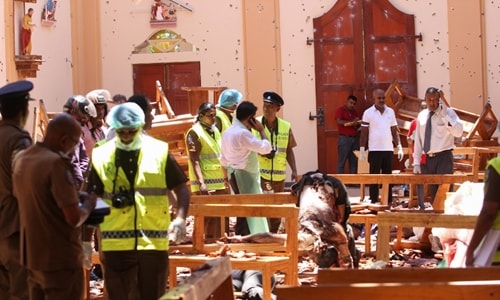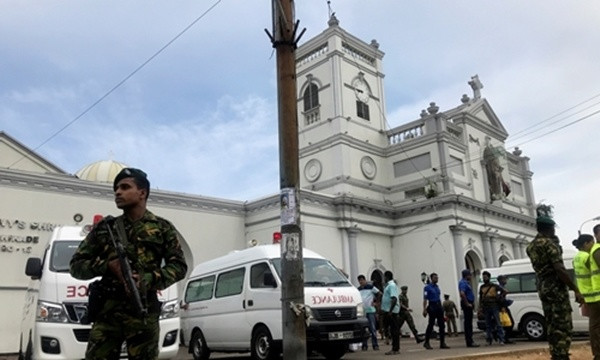Sri Lankan intelligence received information about bomb plot 10 days ago
Despite warnings, Sri Lankan security forces failed to prevent the bombings.
 |
Officials at the scene of the explosion at St. Sebastian's Church in Negombo on April 21. Photo:AFP. |
Sri Lankan Prime Minister Ranil Wickremesinghe said yesterday that the country's security forces were "aware" of a possible attack. Local intelligence received a warning 10 days ago that "prominent churches" could be targeted for suicide bombings.
"We must be clear why proper precautions were not taken," Mr Wickremesinghe stressed.
Six explosions hit three luxury hotels and three churches, mostly in and around Sri Lanka's capital Colombo, on Easter Sunday morning. Two more blasts followed in the afternoon on the outskirts of Colombo. The series of explosions killed 207 people and injured more than 400.
Most of the victims were Sri Lankans, but authorities said about 35 foreigners were also killed. So far, authorities have identified two Britons, one Dutch, one Chinese, one Portuguese and two Turkish nationals.
 |
Security forces stand guard outside the St. Anthony Shrine in the capital Colombo. Photo:Reuters. |
No one has claimed responsibility for the series of attacks, but Sri Lanka's Defence Minister Ruwan Wijewardene said the perpetrators were religious extremists. Suicide bombers were responsible for most of the morning attacks, and they were carried out by just one group.
Sri Lanka has arrested 13 suspects in connection with the incident. The government has also imposed a curfew and blocked several major social media sites and messaging apps, including Facebook and WhatsApp, to prevent the spread of false rumors.


